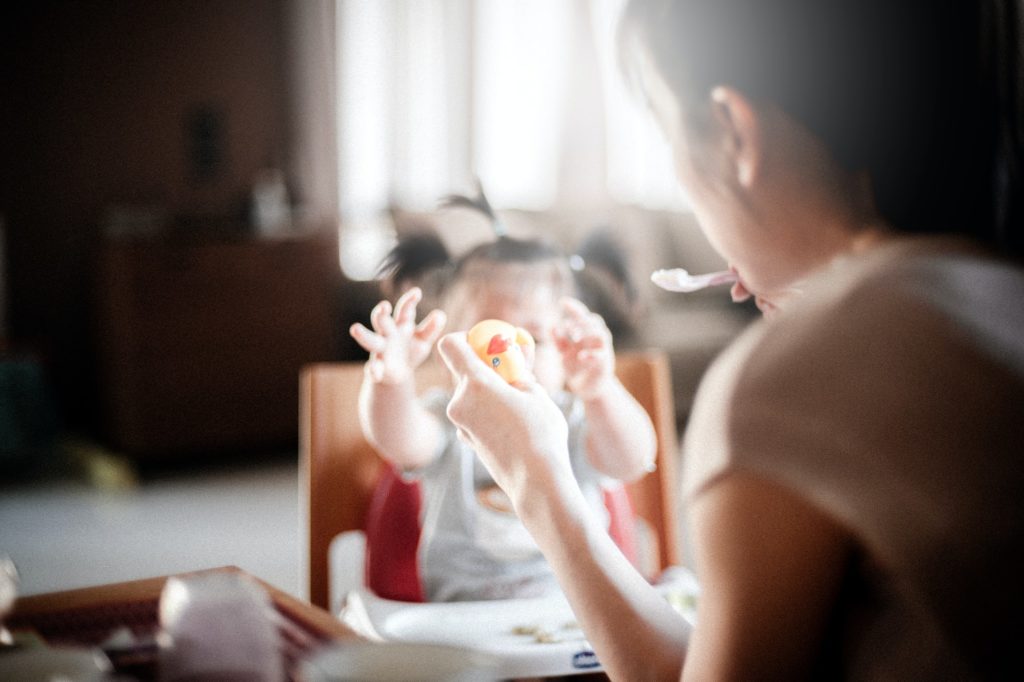I can still clearly remember sitting in the new moms group that I participated in when my daughter was first born, now nearly 15 years ago. I remember sharing my birth story and describing how my hopes of having an intervention-free birth were dashed when I developed HELLP syndrome (preeclampsia with its usual suspects of high blood pressure and proteins in urine in combination with low platelets, elevated liver enzymes), which necessitated being tethered to the bed with an IV full of magnesium sulfate and eventually an epidural. So much for my peaceful, natural birth with my doula present and a relaxing playlist. When I told my story, the amazing group facilitator shared these wise words: “Your birth not going as planned is good practice of the experience of parenting, and all that comes with it, not going as planned.” She helped me see that this was only the beginning of learning that I needed to go with the flow and loosen my expectations of perfection.
Boy was she ever right. I soon realized that all my expectations for what life as a mom would be like were out the window. Organized, clean home—NOPE. Laundry washed, folded and put away all in the same day—NOPE. Being able to efficiently accomplish easy tasks—NOPE. Sink cleared of dishes—NOPE. My baby happy to entertain herself while I maintained my pre-mom standards of just about anything—NOPE. Newborns are the epitome of unpredictable. They need to eat, be changed, often eat again and sleep irregularly. In the beginning, this all happens in a very unscheduled manner. Early on in parenthood, there isn’t time for much else. As someone who was used to living a life that was my own and feeling successful at it, this came as a big shock. I have since learned, many times over, that I was not alone in my experience and the feelings that came along with it.
In probably every session of The Chicago New Moms Group, a mom in the group will share that she is very “Type A.” A type A personality tends to be competitive and self-critical, highly organized and very aware of time management. This often goes hand and hand with perfectionism. Perfectionism, in relationship to parenting, is comprised of these “6 dimensions: concern over mistakes, personal standards, parental expectations, parental criticism, doubt about actions and organization (Gelabert, E., et al, 2010).” It can also be defined as the setting of high standards paired with overly critical self-evaluation in pursuit of these standards (Frost, R.O., et al, 1990). Given the fact that babies tend to be highly unpredictable and sometimes don’t take well to being managed in a way that fits neatly into our adult lives, perfectionist tendencies can make motherhood very challenging. Research has shown that “high perfectionism and particularly high concern over mistakes is a personality dimension associated with major postpartum depression (Gelabert, E., et al, 2010).” This tendency that has served to keep our lives balanced “just so,” can often be toppled by the experience of new motherhood. For some, it can be a risk factor for postpartum depression. In addition, the stress of trying to maintain the appearance of succeeding at your staring role of motherhood can often lead further towards depression.
Imagine you are a person who likes order and predictability. You think of yourself as someone who is “put together.” As moms are having babies later and later into their lives, we have often lived with this expectation of order for longer periods of time than moms of previous generations. We are professionals, frequently with high-powered careers that require immense attention to detail where we may be subject to intense scrutiny and judgment. As women, we may be told, either implicitly or explicitly, that we have to be even better then men at what we do in order to achieve over our male counterparts. This is a sad fact, but is often the case. A baby comes along and all of the traits that have helped you achieve before can now conspire against you.
Babies are all about trial and error, about learning from your many mistakes. I don’t know a single mom who hasn’t failed at some parenting task only to have to pick back up and try again. One study showed that those who have greater difficulty with making mistakes are four times more likely then their more laid-back peers to suffer with postpartum emotional challenges (Levy, M., 2013).
Your baby doesn’t care if your house is neat and orderly. Your baby doesn’t care if your nursery is set up and ready for use when you come home from the hospital. Your baby doesn’t care if his clothes are brand new or hand-me-downs or his stroller is the latest model. And sometimes babies cry, some more often and intensely than others. No matter how good of a mom you are, your baby will sometimes cry. None of this makes you a bad mom, but often we feel we are failing if our life as a mom isn’t meeting our pre-mom expectations of perfection.
Motherhood is really about finding your “new normal” and learning to rely on others for the support that you need. Those others may be your partner, your community, your parents or paid help. Practice letting go of perfection in your daily life. Let the dishes sit in the sink, do something for yourself in lieu of folding the laundry. Focus on what has gone well today.
A few months back, a mom who was in my 2nd Time Moms Group and had also been in the New Moms Group with her first baby remarked that this time around, she was learning to “let go of perfectionism.” I smiled in response, my heart filling with joy, knowing that acknowledging this fact would help her on her path to being able to be a present and honest mother. She had come to learn that little about motherhood could be truly perfected. Motherhood is sometimes about setting the expectation bar low and then being pleasantly surprised by exceeding those expectations. And remember, you only need to be good enough.
References:
Frost, R.O., Marten, P., Lahart, C., Rosemblate, R. (1990). The dimensions of perfectionism. Cognitive Therapy Research. 14, 449-468.
Gelabert, E., Subira, S., Garcia-Esteve, L., Navarro, P., Plaza, A., Cuyas, E., Navines, R,., Gratacos, M., Valdes, M., Martin-Santos, R. (2010). Perfectionism dimensions in major postpartum depression. Journal of Affective Disorders.
Levy, M. (2013). Does your personality style put you at risk for postpartum depression. Retrieved from http://www.goodtherapy.org/blog/does-personality-style-put-you-at-risk-for-postpartum-depression-0524135.


